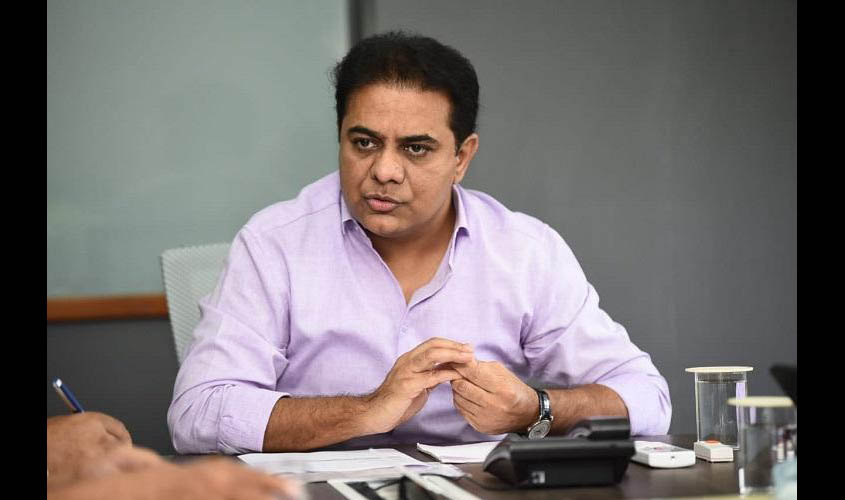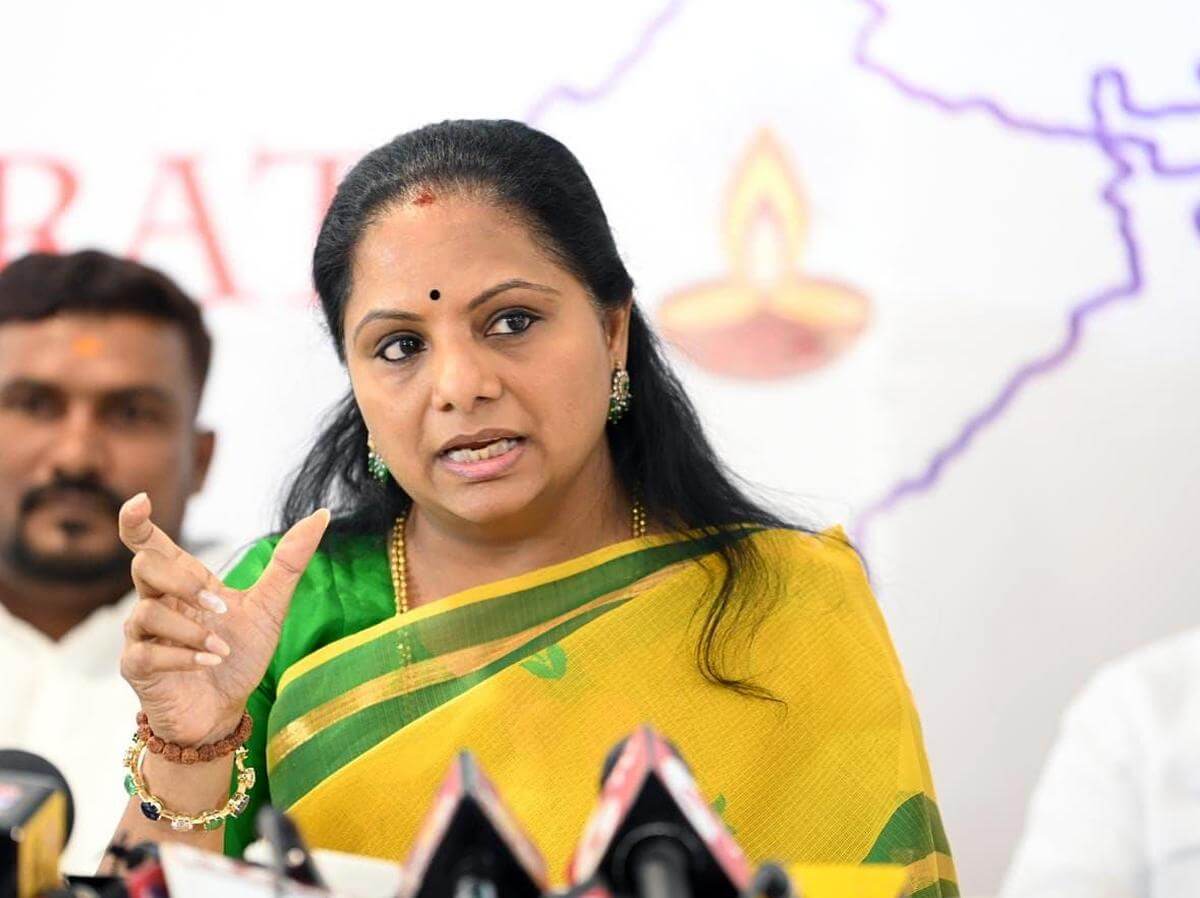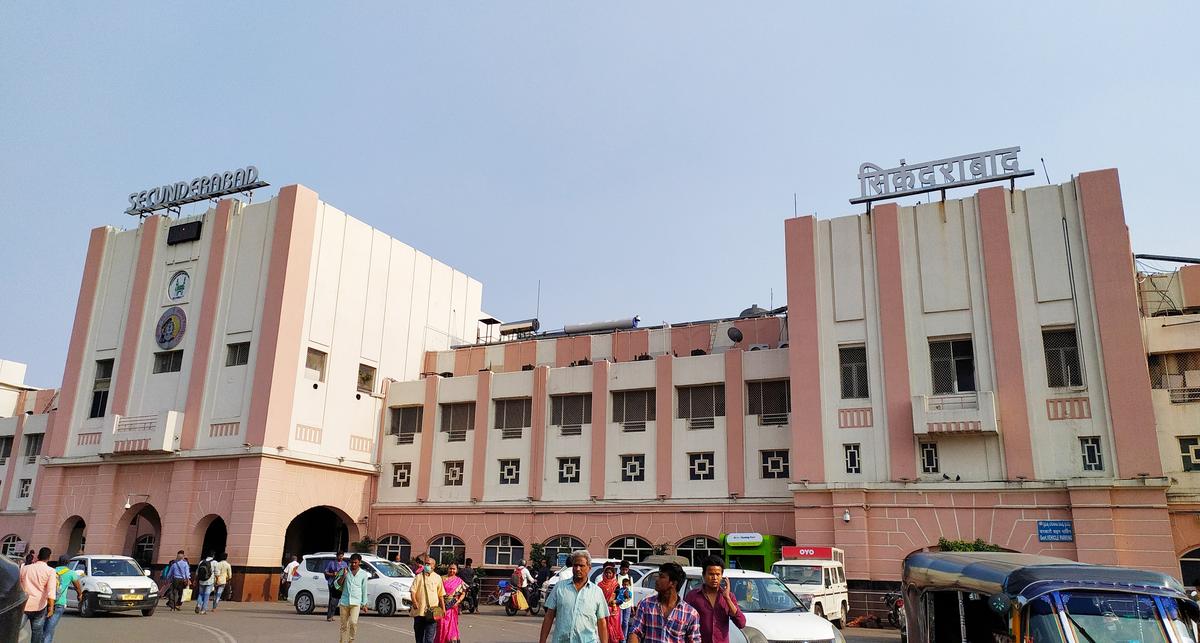Aatmanirbhar package needs a relook: K T Rama Rao
Fri 18 Jun 2021, 11:26:43

IT and Industries Minister KT Rama Rao on Thursday picked holes in the implementation of the much-touted Aatmanirbhar relief package and sought an immediate reappraisal of the initiative by the Centre to ensure MSMEs get maximum benefits under the package.
In a letter to Union Finance Minister Nirmala Sitharaman, the Minister pointed out that every MSME has unique challenges, and a “one-size-fits-all” kind of scheme is hardly the answer to their requirements. “What will really work is a solid financial grant that takes care of all the losses the MSMEs have suffered due to the Covid-19 pandemic,” he said, adding that the actual ground challenges that the MSMEs continue to face even today include supply chain disruptions, a severe shortage of labour, and in some cases, a complete disruption in their customer preferences.
“It has been over a year since the Prime Minister announced the Aatmanirbhar relief package of Rs 20 lakh crore for all the sectors adversely impacted by Covid. However, one year down the line, I regret to mention that the impact of the package has been minimal for this sector that has really faced the brunt of the pandemic,” Rama Rao said.
Pointing out that over 80 per cent of the MSMEs in Telangana had faced a negative impact mainly due to the complete lockdown last year and that more than 25 per cent had lost significant revenues, he said the most touted and directly targeted scheme for the MSME sector in the package was the Guaranteed Emergency Credit Line scheme under which Rs 3 lakh crore was allotted.
“As the Industries Minister, I focused hard on ensuring that MSMEs in the State which constitute the backbone of our manufacturing sector benefit from the package,” he said. In Telangana at least, the MSME units themselves did not find anything specifically attractive in the scheme, and it took us a prolonged outreach campaign to make them avail of the benefit, he said, adding that in hindsight, it appears that the scheme was designed with the sole principle of making its administration
simple.
simple.
“Two other schemes are also targeted at the MSMEs in the Aatmanirbhar package. One is meant for stressed MSMEs and the other is for innovative MSMEs. Unfortunately, these two have been complete non-starters not just in Telangana, but as data reveals, in the entire country,” the Minister said.
Stating that the Subordinate Debt scheme for stressed MSMEs offered very meagre loan amount, he said it has an impractical requirement of establishing the commercial viability of the unit before sanctioning the loan, which seems very impractical during a time of uncertainty where no one can ever be sure of viability based on risk assessment. “The guidelines of the Corpus Fund scheme meant for innovative MSMEs have not been released so far,” Rama Rao said.
“Another component of the Aatmanirbhar package, which could have potentially impacted the MSMEs positively, is the PLI scheme offered in different champion sectors. In its present form, it is evident that the scheme will only benefit large manufacturing companies.
A simple tweak in the scheme guidelines can benefit the MSMEs enormously, and it could be to mandate the large manufacturing companies to set up a supply chain of domestic MSMEs and share the PLI benefits with each of them proportionately,” the Minister said.
The Minister said when the package was announced in May last year, everyone had hoped that the pandemic would be short-lived, and therefore, the package, however imperfect it may be, would suffice. “But now we know that the pandemic continues through the second wave and can possibly see a third wave also any time soon,” he said.
“It is time for a sincere reappraisal of the Aatmanirbhar package and make it work more realistically and humanly for the most-affected constituents, of which MSMEs occupy a top priority,” he said, adding that if the Centre takes the right steps in this direction, States will certainly follow suit and match its efforts with their own.
No Comments For This Post, Be first to write a Comment.
Most viewed from Hyderabad
Most viewed from World
AIMIM News
Owaisi hails SC order on Places of Worship Act
Dec 13, 2024
AAP Corporator Tahir Hussain joins AIMIM party
Dec 11, 2024
BJP-SP two sides of same coin: Asaduddin Owaisi
Nov 19, 2024
Latest Urdu News
Most Viewed
May 26, 2020
Do you think AAP will perform better in Delhi polls without alliance?
Latest Videos View All
Like Us
Home
About Us
Advertise With Us
All Polls
Epaper Archives
Privacy Policy
Contact Us
Download Etemaad App
© 2024 Etemaad Daily News, All Rights Reserved.




.jpg)
.jpg)
.jpg)
.jpg)
.jpg)






.jpg)
.jpg)
.jpg)
.jpg)
.jpg)
.jpg)
.jpg)
.jpg)
.jpg)















